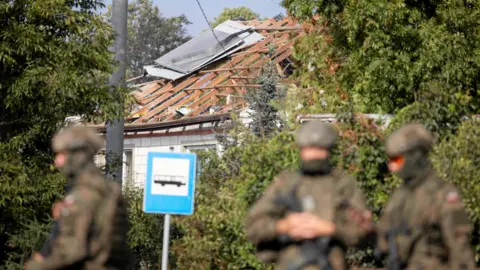Wednesday morning's incursion of Russian drones into Polish airspace led to jets being scrambled and an emergency government meeting being called - raising concerns that Europe and NATO's resolve against Moscow may not be up to the test.
Poland's Prime Minister Donald Tusk reported multiple violations, with at least three drones shot down by Polish jets, in a military operation aided by Dutch and Italian forces. Despite Russia's claims that the incident was accidental, European officials have pushed back, asserting the act's intentional nature.
Germany's Defence Minister Boris Pistorius stated, There is no evidence whatsoever that this amount of drones flew over this route over... Polish territory by accident. Italian Minister Guido Crosetto labeled the events a deliberate attack aimed at testing NATO's responses.

Though incidences of airspace violations have become more frequent since the Russian invasion of Ukraine, this latest, larger-scale event has caused palpable nervousness in Warsaw. Tusk cautioned that Poland was at its closest to conflict since World War II and requested consultations with NATO under Article 4, concerning threats to national security.
Experts have mixed views on Russia's motives. Some suggest reconnaissance intentions and GPS failures could explain the violations, but many others argue the scale indicates a purposeful act to provoke and assess NATO responses.
Whether intentional or not, this incident puts pressure on NATO as a whole to react strategically. The absence of a robust and unanimous response could embolden further Russian aggression, raising the stakes for European and NATO security measures in the region.
US reactions are being closely monitored, particularly as lawmakers from both parties have already condemned the actions. However, President Trump's vague response reflects ongoing concerns about the US commitment to NATO’s security architecture.
As Europe observes, the lack of decisive action could signify a perceived weakness, encouraging further Russian provocations. Analysts recommend a unified response to establish a clear deterrent against future aggressions.

















